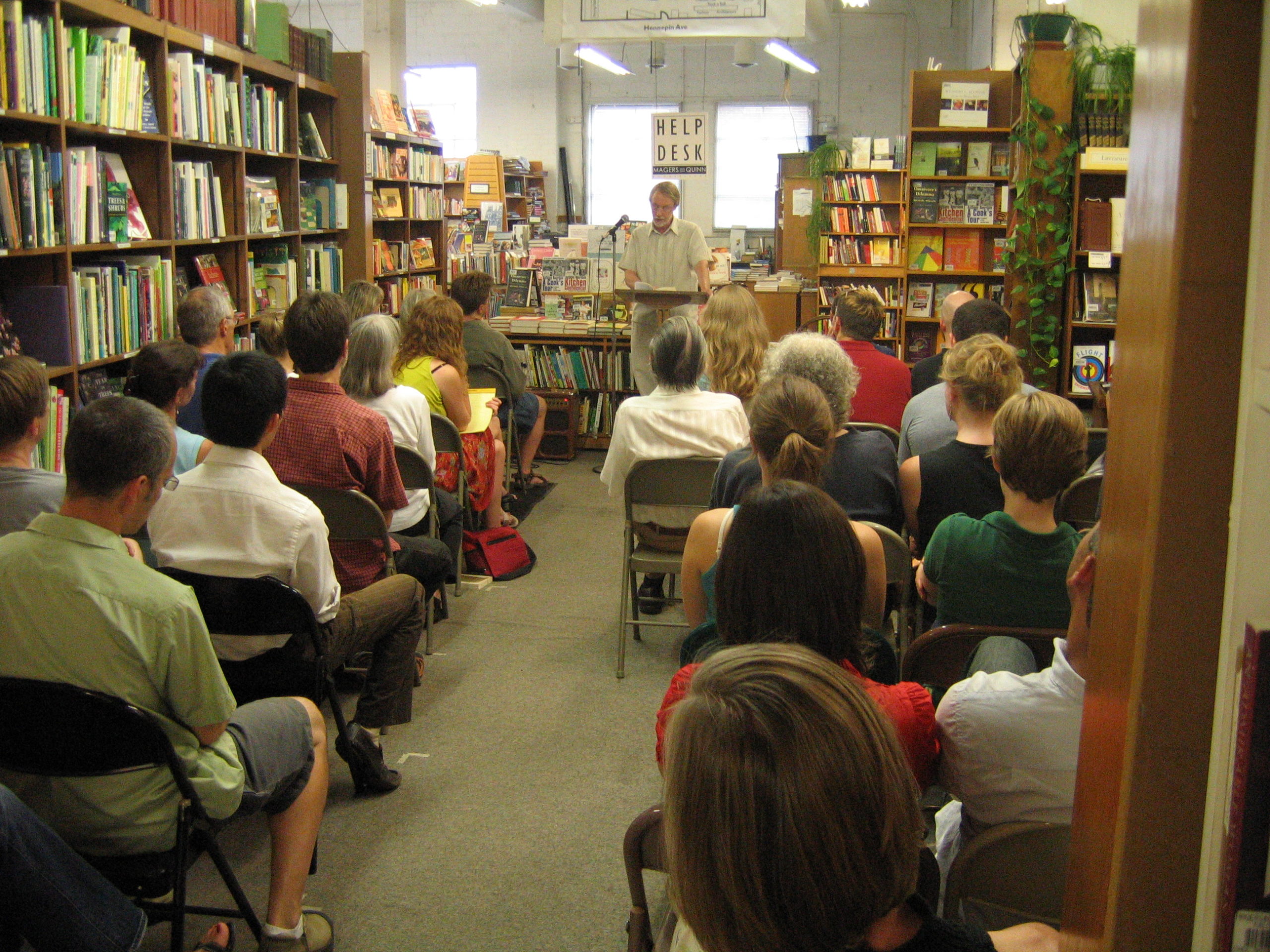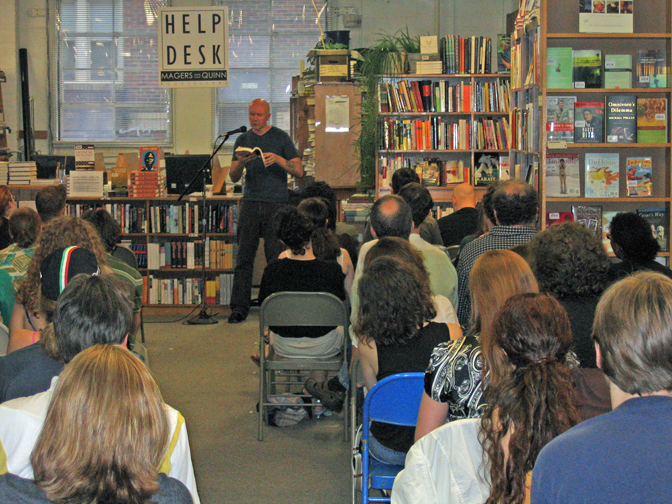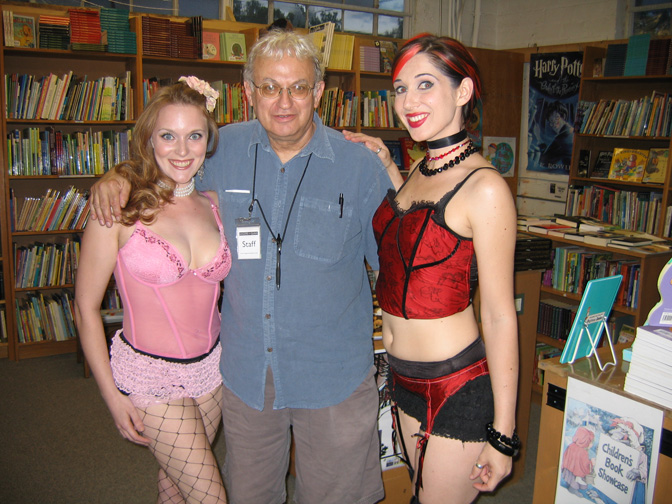So, You Wrote a Book–Now What?
Veteran bookseller and publisher David Unowsky offers no-nonsense advice on how to place your book on store shelves (and ensure that it doesn't just sit there).



I AM THE EVENTS MANAGER AT MAGERS AND QUINN, a large independent bookstore in Minneapolis. Im also the person who makes the decisions about consignment books. On average, I get about two calls or e-mails a week (100 per year) that start out like this: Hi, Im Joe/Mary Smith and Ive just had my book published. I hope youll consider carrying it in your store and that you’ll also consider hosting a reading and signing for me. Upon further discussion with the author, it invariably turns out that the book in question comes with very little publisher support: the title is either self-published, published (at a large cost to the author) by a vanity press that provides little or no marketing services, published by a very small press with little or no marketing services, or available only via print-on-demand.
None of these circumstances is particularly attractive to booksellers, but a lot of writers find themselves in a situation like this at one time or another. (Even writers who land a deal with a bigger publishing house often find themselves with less than robust marketing support for their new books.) A savvy author looking to get their books in front of readers needs to come armed with some basic book marketing know-how and, just as importantly, needs to have a realistic understanding about the bookselling business. I offer here a short primer on placing your book for sale in an independent bookstore and, after that, possibly scheduling an author event to spread the word to readers.
The first thing to understand is this: bookstores are not public service organizations. Theyre in business to make a profit and, these days, they are having great trouble achieving that goal. The closing of many local independents and declining book sales even in big chain stores like Borders ought to make that clear. Now more than ever, bookstores are making decisions about what books they carry based on what they think readers will buy. Your book will need to be up to par in three main areas to induce booksellers to work with you, carry and display your book, and for them to consider hosting a related event: bookstores will assess the quality of your book, the pricing (both the suggested retail price and the discount you’ve offered to booksellers), and what kind of marketing/publicity campaign is being done in support of the book’s release.
1) Quality of the bookOf course, every writer thinks theyve written a terrific book. Given how difficult it is to get the attention of a publisher or an agent, I never assume that a book isnt well written merely because it hasnt been published by a major publisher or by a respected small press. But your book has to look like a book (and not like a stapled computer printout). It should have a decent, durable cover and the text should be properly laid out. Your text needs to have been skillfully edited and copyedited so that it’s error-free and polished.
2) Pricing and discountBookstores can buy books that are well-made, well-marketed, likely to sell, and fully returnable, even if they’re not sold from regular publishers. That is, bookstores can do so as long as they’re able to purchase them from the author/publisher at a 45-47% discount off of the retail price. The costs associated with handling one title from one author are higher, per book, than the cost of handling a larger volume of titles from a bigger publisher. Talking to the author, examining the book, entering the title into the store’s inventory, labeling it for sale, shelving and displaying it, keeping financial/sales records for the title, and writing a check for books soldall these are time- and money-consuming tasks. In compensation for taking on the burden of these tasks, authors should expect that booksellers will want the same (or higher) profit margins on your book that they receive from books ordered from larger publishers.
To expect otherwise is naïve, to say the least. Some bookstores may agree to carry your book if you offer it to them with a 40% discount off of the retail price. At Magers and Quinn, for books carried on consignment we expect to receive a 50% discount. In addition, we frequently sell this kind of book below retail. Keep in mind that the retail price of your book needs to be appropriate to the audience and in keeping with others of its kind in the marketplace. I cant tell you how many times Ive been presented with a nice looking but un-illustrated, short 160-180 page book only to be told that it retails for 25 bucks or more. Know this: books of that length wont sell at that price, and bookstores cant afford to give up valuable sales floor space to books that wont sell.
3) Marketing and publicityGetting your book on the shelves at bookstores is a feel-good thing; getting them to sell in those bookstores is something else altogether. Hundreds of books have been written on the subject of marketing books to readers, so anything I write here will, of course, only scratch the surface. Here are a few simple things you can do to help sell the book:
a) Call, write, or e-mail your friends and ask them to go to the bookstore(s) carrying your book and buy one. If your friends all expect a free book from you, get some new friends who will support your writing career and who will not only buy books for themselves, but also buy extra copies for their friends.
b) Contact the neighborhood paper(s) that serves the area where you live as well as the daily papers that serve the communities where your book is on sale. Tell them you are a local author with a new book and that you would like to get a review or mention in their paper. Provide their editor/arts writers with a copy of the book. When you do, dont forget to include (this is crucial) a one-page sheet with info about the book and author, some admiring quotes about the book if theyre available, as well as contact info for you and a listing of places where the book is available for sale.
c) Make an attractive 8 ½ by 11 flyer with an appealing blurb about the book and some information about where to buy it. Post that flier in coffee shops, libraries, and in stores around your neighborhood and, of course, in the places where your book is for sale.
d) Take advantage of every relevant on-line resource to post information about your book.
A FEW WORDS ABOUT AUTHOR EVENTS HOSTED BY BOOKSTORES
1) Be professional and courteousFind out who runs events for the bookstore, and make an appointment. Have relevant materials (see above) on hand to address their concerns and questions. Be aware that its going to cost the store $300-500 dollars to put on an event for your book; you need to convince the events manager that such a reading can be successful. The store will handle publicity for the event, display the book, post information about your reading on its website, etc. You need to be prepared to perform some additional marketing/publicity of your own to ensure the event’s success (see #3 above).
Contact the events manager at least two months before the date you’d like to have the event. This will allow enough time for both your individual and the bookstore’s publicity efforts to have a substantial effect on turnout and reader interest. Dont schedule more than two or three total events for your town; and even those should be held in different neighborhoods. Too many events yield diffusion of the audience (and less turnout for any one reading) which results a mediocre outcome for all concerned. Make sure the store has all the information they need to go about ordering your book and/or that consignment terms have been arranged to everyone’s satisfaction (see item #2 above).
2) The event itselfCheck out the event space and set-up in advance. (Even better: taking some time to attend a different event at the store hosting your reading is wise.) Arrive 15-20 minutes before the event. Bring your own book, pen, and beverage. Be prepared to talk about or read from your book for 20-30 minutes and, afterward, to answer questions for another 15 minutes. For multi-author events, you will have less time. I cant stress enough how important it is to prepare your presentation in advance. Fumbling and stumbling around with what you want to say loses the audiences attention and kills book sales. At the end, greet people graciously as you sign books. Do not tarry with one or two people; if a longer discussion with someone is called for, talk with them after everyone elses books have been signed, and pick a different spot in the store to chat than where event took place so the bookstore staff can reassemble for the rest of the day’s business. Don’t forget to thank the audience. And thank the bookstore and staffpeople who set up the chairs and sold your books.
3) Nontraditional literary event venuesIts entirely possible that you wont be able to schedule an event at a bookstore. Do not despairthere are an unlimited number of other venues at your disposal. (However, be prepared to do all or most of your own publicity in this case.) In the thirty-plus years I’ve been in the business, I’ve known of book events in churches, libraries, restaurants, hotels, bars, art galleries, ballparks, barbershops, retail stores, parks, playgrounds, warehouses, tents, party rooms of apartment buildings, and in private residences. Your venue options are limited only by your imagination and your ability to successfully negotiate with whomever controls the space. If you do arrange an author event at one of these non-bookstore locales, I suggest you have someone else with you to sell books so you can concentrate on your presentation and book-signing.
A FINAL, KEY PIECE OF ADVICE: One of the most valuable things an author can do (especially an author whose book falls into the category of DIY or shoestring publishing) is to talk with a bookseller or publishing insider with similar knowledge (who isn’t your printer or publisher) BEFORE investing your money and time in the publication of a book. Doing so provides an invaluable reality check as to price and sale-ability of your book.
Once, I gave this advice when speaking to a group of self-published authors. One of the authors said she didnt know any booksellers to talk to. What should I do? she asked. I suggested that when she goes to a bookstore, she could strike up a conversation with one of the booksellers there and ask them for their opinion about her book idea. She then said that she never goes to a bookstore. “I do all my book shopping on Amazon.com,” she replied. In that case, I suggested that she should place her book for sale with Amazon and have her reading there. But how would a reading on Amazon work? she asked. Doh! said I.
About the author: David Unowsky founded Hungry Mind bookstore (a.k.a.Ruminator Books) in 1970 and, under his leadership, it remained a national treasure among independent bookstores across the country until it closed in 2004. Over the course of his career in bookselling, David has published the nationally acclaimed literary magazine Hungry Mind Review (Ruminator Review) and overseen publication of a host of well-received literary fiction and nonfiction titles by Hungry Mind Press. He currently serves as events manager for Magers and Quinn Booksellers and is one of the principals behind the newly created publishing house, Scarletta Press, which is based in Minneapolis.
Further reading for writers:
The New Writer’s Handbook 2007: A Practical Anthology of Best Advice for Your Craft and Career Preface by Erica Jong, Edited by Philip Martin
Writer’s Market (Deluxe Edition) 2008 By Robert Brewer
Publicize Your Book! An Insider’s Guide to Getting Your Book the Attention it Deserves By Jacqueline Deval
The Practical Writer: From Inspiration to Publication Edited by the staff of Poets and Writers magazine
Some online resources:
Mediabistro.com
The Queue: Helping Writers Get Better and the Best Writing Get Published
Poets and Writers: Tools for Writers
Writers Write: A Writer’s Blog and Books, Writing, and Publishing Resource